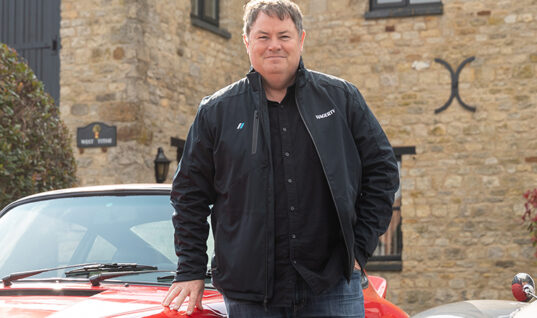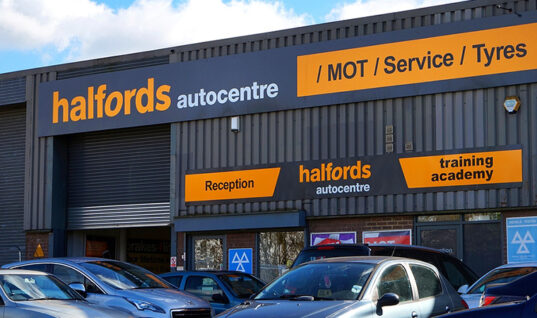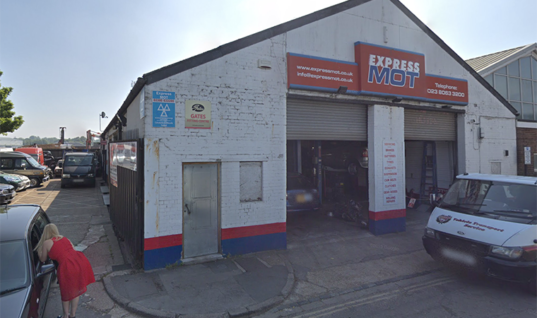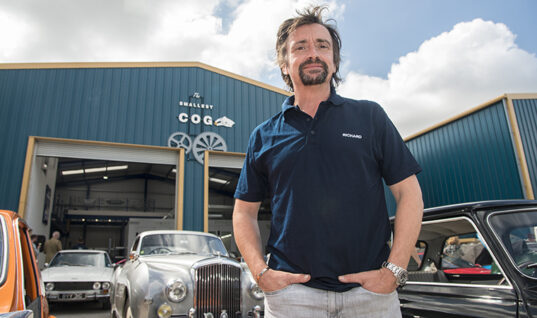In a paper presented at the 2019 Vienna Motor Symposium this month, Delphi Technologies has revealed a new 500+ bar GDi system that can reduce particulate emissions by up to 50 per cent compared to state-of-the-art 350 bar system without expensive engine design modifications.
Reducing the number of exhaust gas particulates, including those smaller than 23 nm, will help manufacturers meet increasingly stringent future global emissions standards.
Reducing engine-out emissions cuts tailpipe emissions in the crucial period before catalyst light-off and reduces the need for costly aftertreatment systems, lowering emissions in regulated testing including real driving emissions (RDE).
At the end of 2016, Delphi Technologies entered production with its industry first 350 bar GDi system, which reduces exhaust particulates by up to 70 per cent compared with industry-standard 200 bar systems.
Walter Piock, chief engineer for gasoline systems at Delphi Technologies, said: “The industry has long recognized that increasing injection pressure to 500+ bar could substantially cut engine-out particulates while improving CO2 emissions and fuel economy.”
The challenge has been to achieve such pressures without increasing the drive loads from the pump.
As most engines power the GDI pump through the camshaft drive, a conventional approach would usually require a costly redesign and strengthening of the camshaft mechanism.
“New internal sealing system”
“By designing an innovative new internal sealing system for our GFP3 500+ bar pump, in some applications, we have designed a downsized plunger diameter which prevents increasing the loads in the drive mechanism,” reveals Piock.
With the new Delphi Technologies system, engine designers can benefit from 500+ bar injection pressures without having to make costly changes to the majority of existing camshaft drive systems.
With combined demands for improved urban air quality and lower greenhouse gas emissions, the fuel injection system is an important building block for meeting future legislative targets.
Delphi Technologies’ 500+ bar system can help vehicle manufacturers meet both challenges.
According to Piock, “Our 350 bar GDi system reduces exhaust particulates by up to 70 per cent compared with industry-standard 200 bar systems and we are going one step further with our new 500+ bar GDi system which further reduces these emissions by up to 50 per cent compared to the 350 bar system.”
To complete the new 500+ bar system, Delphi Technologies has developed all system components including Multec 16 injectors, pumps, forged rail as well as the appropriate engine control system and software.
Engine mods not required for majority of applications
These components, which further improve durability and reliability, also require no or only minor physical changes to existing engines because they match existing packaging constraints and interfaces.
The 500+ bar system could be used in production from 2022 onwards.
A second paper at the symposium, co-authored by Westport Fuel Systems and Delphi Technologies, will describe the innovative Westport High Pressure Direct Injection HPDI 2.0TM system.
This advanced system reduces tank-to-wheel CO2 emissions in heavy-duty commercial vehicles through the use of high pressure natural gas.
The HPDI 2.0 system in the field today delivers a CO2 reduction of up to 20 percent.
In the case of renewable natural gas, the system can achieve a reduction of almost 100 percent.
The Westport HPDI 2.0TM system can be installed on current technology heavy-duty diesel engines and trucks with minimal change to these proven products.
By providing an up to 20 per cent CO2 reduction, the Westport HPDI 2.0TM system provides OEMs with a path to make their current trucks compliant with the EU regulations through 2029.
Delphi Technologies’ proprietary control valve strategy, enables the delivery of a small pilot injection of diesel followed by a larger main injection of natural gas through Westport’s novel duel concentric needle nozzle.
The individual diesel pilot sprays auto-ignite, providing multiple ignition sources that are spatially distributed, ensuring consistent ignition of the natural gas jets.
The natural gas combustion then proceeds in a predominantly non-premixed fashion.
As a result, engine knock is eliminated and the base diesel engine’s compression ratio can be retained.
Because the natural gas is not premixed, load control is achieved by simply reducing the fuel flow, as in a conventional diesel; part-load throttling is not required.
“Combustion of natural gas in a diesel cycle delivers equivalent power density and combustion efficiency to that of conventional diesel,” said James Kewley, product engineering director, diesel fuel injection systems and ICE components, Delphi Technologies.
“This enables the exploitation of the lower CO2 potential of natural gas without the penalty associated with moving to the Otto cycle.
“It will help OEMs cope with the increasingly demanding regulations, particularly as pressure grows to further reduce CO2 emissions from heavy duty trucks.”
For more information on Delphi Technologies, select ‘more details’ below.







